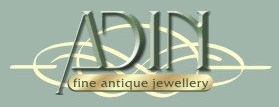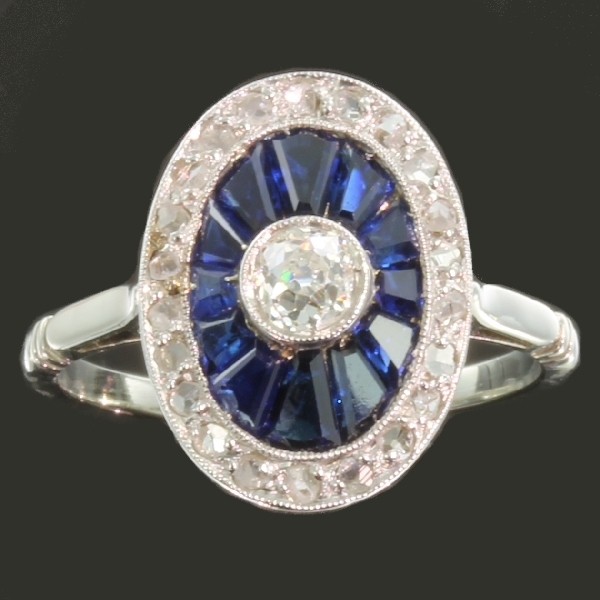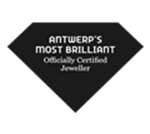We offer layaway, spread payments on the piece of your dreams. Ask us for details. Free insured shipping on all orders !!!
Most elegant French Art Deco engagement ring with diamonds and sapphires
Antique jewelry object group: engagement ring (or anniversary ring)
Condition: excellent condition
- (more info on our condition scale)
Country of origin:
France
Style:
Art Deco - Art Deco is an eclectic artistic and design style which had its origins in Paris in the first decades of the 20th century. The style originated in the 1920s and continued to be employed until after World War II. The term "art deco" first saw
wide use after an exhibition in 1966, referring to the 1925 Exposition Internationale des Arts Décoratifs et Industriels Modernes that was the culmination of high-end style moderne in Paris. Led by the best designers in the decorative arts such as
fashion, and interior design, Art Deco affected all areas of design throughout the 1920s and 1930s, including architecture and industrial design, as well as the visual arts such as painting, the graphic arts and film. At the time, this style was seen as
elegant, glamorous, functional and modern.
- See also: Art Deco
or more info on styles
Style specifics:
Abstract motives and geometrical forms are quite typical for the Art Deco period. Art Deco moved away from the soft pastels and organic forms of its style predecessor, Art Nouveau, and embraced influences from many different styles and movements of the
early 20th century, including Neoclassical, Constructivism, Cubism, Modernism, and Futurism. Its popularity peaked in Europe during the Roaring Twenties and continued strongly in the United States through the 1930s. Although many design movements have
political or philosophical roots or intentions, Art Deco was purely decorative.
Period: ca. 1920
- (events and facts in 1920)
Material: platinum
and 18K white gold
- (more info on precious metals)
Extra information:
Art Deco - The Art Deco style is a very famous and popular art movement that had a lot influence in the world of jewelry. Art Deco was introduced in the 1920s as protest against the Art Nouveau style. Art Deco
ended in the 1930s. The style emphasized a very abstract design with geometric patterns and as most favorite colors: black
(onyx), blue (sapphire)
, green (emerald)
, white (diamond)
and red (coral).
The baguette and emerald-cuts, which had been developed in the nineteenth century, where very popular in the 1920s because they blended so much with the geometrical lines of the Art Deco style.
Most of the Art Deco jewelry has a very luxury design. This is because of the large amount of money that was made in the war of 1914. All this money gave the opportunity to buy the best fashionable materials like: diamonds,
platinum, red gold
and yellow gold for the design of the jewels. Of course there are a lot of beautiful but less priced jewels in the
Art Deco movement. Years later in the 1960s and 1970s Art Deco came back as a very popular decorative art. Even nowadays you can see that Art Deco style has great influence on our designing in all kind of branches.
History of Art Deco
After the Universal Exposition of 1900, various French artists formed a formal collective known as, La Société des artistes décorateurs (the society of the decorator artists). Founders included Hector Guimard, Eugène Grasset,
Raoul Lachenal, Paul Follot, Maurice Dufrene, and Emile Decour. These artists heavily influenced the principles of Art Deco as a whole. This society's purpose wasto demonstrate French decorative art's leading position and evolution internationally. They
organized the 1925 Exposition Internationale des Arts Décoratifs et Industriels Modernes (International Exposition of Modern Industrial and Decorative Art), which would feature French art and business interests. Russian artist Vadim Meller was
awarded a gold medal for his scenic design there.
The initial movement was called Style Moderne. The term Art Deco was derived from the Exposition of 1925, though it was not until the late 1960s that this term was coined by art historian Bevis Hillier, and popularized by his 1968 book Art Deco of the
20s and 30s. In the summer of 1969, Hillier conceived organizing an exhibition called Art Deco at the Minneapolis Institute of Arts, which took place from July to September 1971. After this event, interest in Art Deco peaked with the publication of
Hillier's 1971 book The World of Art Deco, a record of the exhibition.
Diamonds:
One old european cut diamond with an estimated weight of approx. 0.20 crt.
and 22 senailles
. A senaille is a simplified rose cut diamond, a small diamond chip with perhaps a few polished facets. We do not have the weight of these diamonds which is normal in our trade when it comes to senailles.
Note: All diamond weights, color grades and clarity are approximate since the stones were not removed from their mounts to preserve the integrity of the setting.
Total diamond weight: approx. 0.20 crt.
(without the senaile rose cut diamonds)
Precious stones:
Twelve special cut to fit sapphires
. We did not check if the sapphires are lab produced
or not as this information has no influence on the value of this jewel. Natural sapphires
and lab produced sapphires were both used in this era, rather more for their effect then for their intrensic value.
- (more info on precious stones)
Birthstones:
Diamond is the birthstone (or month stone) for April
and sapphire for September.
- (more info on birthstones)
Hallmarks:
- (more info on hallmarks)
Dimensions: top of ring 1,50 cm (0,59 inch) x 1,18 cm (0,46 inch)
Weight: 2.90 gram (1.86 dwt)
Ring size Continental: 51 & 16¼ , Size US 5½ , Size UK: K½
Resizing: Free resizing (only for extreme resizing we have to charge).
- (more info on ring sizes)
Reference Nº: 13156-0018
Copyright photography: Adin, fine antique jewelry
white gold jewelry,
platinum jewelry,
jewelry with diamond,
jewelry with sapphire,
latest acquisitions,
antique jewelry,
estate jewelry,
vintage jewelry or
modern jewelry
Jewelry with birthstones (or month stones) for:
January -
February -
March -
April -
May -
June -
July
August -
September -
October -
November or
December.
Additional information:
jewelry glossary -
wall of fame -
visit us in Antwerp -
subscribe to our mailinglist.
What is antique jewelry? -
What is estate jewelry? -
What is vintage jewelry?




